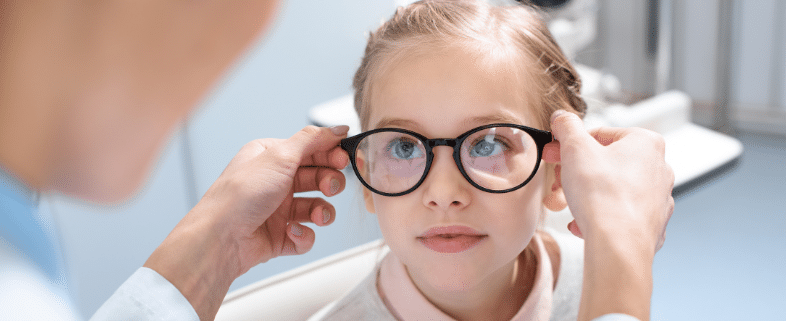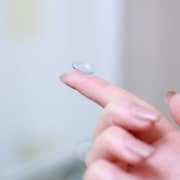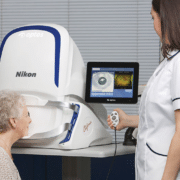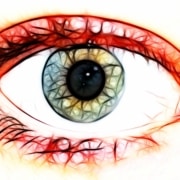Understanding Child Eye Care
As a parent or caregiver, you undoubtedly want the best for your child’s health and well-being. One crucial aspect of their overall health is eye care. Ensuring that your child’s vision is in top shape can greatly impact their learning, development, and overall quality of life. So, what do you need to know about eye care for children?
To begin with, regular eye check-ups are essential for children. They should have their first comprehensive eye exam at around six months of age, followed by another at age three, and then again before starting school. After that, annual check-ups are generally recommended. These exams are vital for detecting and addressing any potential vision issues early on, ensuring your child’s eyesight develops properly.
But there’s a lot more to it. Several other factors can also affect the recommended schedule for your child’s eye exams. There’s a lot to know about maintaining good eye health in children, including signs of potential vision problems and practical tips for keeping their eyes safe and healthy. So, if you want to ensure you’re doing everything you can to safeguard your child’s vision, read on to get the complete picture of eye care for children.
What Factors Might Require Different Eye Care Schedules for Children?
When it comes to eye care for children, one size doesn’t necessarily fit all. Various factors can influence the recommended eye care schedule for your child. Let’s explore some of these factors:
- Family History: If there’s a history of eye conditions like myopia (nearsightedness), hyperopia (farsightedness), or amblyopia (lazy eye) in your family, your child may be at a higher risk. In such cases, your eye care professional may recommend more frequent check-ups to catch potential issues early.
- Premature Birth: Babies born prematurely are more likely to experience vision problems. Preterm birth can affect the development of the eyes, and regular monitoring is essential to detect and address any issues promptly.
- Developmental Delays: Children with developmental delays may require specialized eye care. Their unique needs may necessitate more frequent assessments to ensure their visual development aligns with their age.
- Environmental Factors: The environment your child is exposed to can also impact their eye health. If they spend a lot of time outdoors, sun protection and safety measures become crucial. Additionally, excessive screen time may require additional considerations.
Remember that your child’s eye care needs can change over time, so it’s essential to maintain open communication with your eye care professional. They can provide personalized recommendations based on your child’s unique circumstances.
How Can I Recognize Signs of Vision Problems in My Child?
As parents, it’s crucial to be vigilant and proactive in monitoring your child’s vision. Early detection of vision problems can lead to more effective treatment. Here are some signs that may indicate your child has a vision issue:
Frequent Eye Rubbing: If your child often rubs their eyes, it could be a sign of discomfort or eye strain. This may suggest an underlying vision problem that needs attention.
Squinting or Closing One Eye: Children may squint or close one eye to try and see better if they have a refractive error like myopia or astigmatism.
Holding Objects Close: If your child consistently holds books or screens very close to their face, it could indicate nearsightedness.
Frequent Headaches: Eye strain from uncorrected vision problems can lead to headaches, especially after activities like reading or using digital devices.
Difficulty in School: If your child is struggling with reading, writing, or other visual tasks at school, it’s worth considering if a vision issue might be the cause.
If you notice any of these signs, don’t hesitate to schedule an eye exam for your child. Early intervention can make a significant difference in their visual development and overall well-being.
Tips for Keeping Your Child’s Eyes Safe and Healthy
Beyond regular eye check-ups and recognizing signs of vision problems, there are several practical steps you can take to ensure your child’s eyes stay safe and healthy:
Sun Protection: Shield your child’s eyes from harmful UV rays by having them wear sunglasses with proper UV protection, especially when spending time outdoors.
Balanced Diet: A diet rich in fruits and vegetables, particularly those high in vitamins A and C, can promote good eye health.
Screen Time Management: Set limits on screen time and encourage regular breaks to reduce the risk of digital eye strain.
Hydration: Ensure your child stays well-hydrated, as dehydration can affect eye comfort and function.
Eye Safety: Teach your child about the importance of eye safety, especially when playing sports or engaging in activities with potential eye hazards.
By following these tips and staying informed about your child’s unique eye care needs, you can help them enjoy a lifetime of healthy vision.
Now that you have a better understanding of eye care for children, the next step should be clear: schedule that eye exam for your child if you haven’t already. Whether it’s their first comprehensive check-up or a routine follow-up, your active involvement in the process can help ensure your child’s visual health is in good hands. Remember, early detection and intervention can make all the difference in their development and overall well-being. So, pick up the phone, make that appointment, and rest easy knowing you’re actively safeguarding your child’s precious eyesight.
Your partners at Kirman Eye are passionately dedicated to providing our patients with the best and most effective eye-care options available when anticipating all of your optical needs.
Contact us to work with you today!












